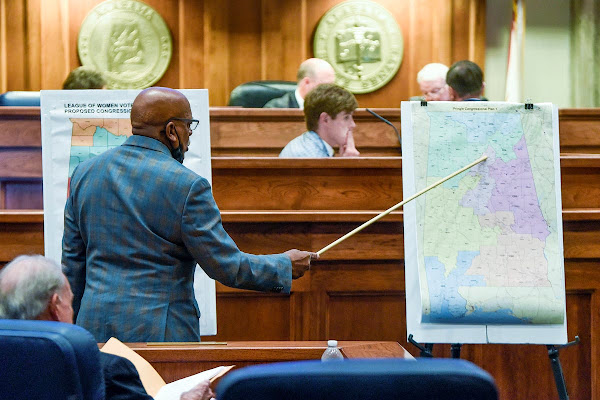
The Ensley Park Recreation Center was beginning to come to life. The song “Happy” and other upbeat tunes boomed through the loudspeakers. And a crowd was gathering for a chance to glimpse something rarely seen in conservative Alabama: a surging Democratic candidate for U.S. Senate.
But Donald Williams was skeptical.
The 75-year-old retired UPS worker had come to cheer on Democrat Doug Jones in a campaign that has captured national attention. Has it also generated energy in Alabama’s African American communities?
“As of this day, I would say no,” said Williams, who is black. “And this is Doug Jones’s problem. He’s got to get out and get the voters energized.”
With two-and-a-half weeks left until Election Day, a once unthinkable victory in the heart of the Deep South is within Jones’s reach, thanks largely to a string of sexual misconduct allegations against Republican candidate Roy Moore.
Jones’s campaign believes he can win only if he pieces together an unusually delicate coalition built on intense support from core Democrats and some crossover votes from Republicans disgusted with Moore. Crucial to that formula is a massive mobilization of African Americans, who make up about a quarter of Alabama’s electorate and tend to vote heavily Democratic.
Yet, in interviews in recent days, African American elected officials, community leaders and voters expressed concern that the Jones campaign’s turnout plan was at risk of falling short.
“Right now, many African Americans do not know there is an election on December 12,” said state Sen. Hank Sanders (D), who is black and supports Jones.
The challenge for Jones is clear. According to Democrats working on the race, Jones, who is white, must secure more than 90 percent of the black vote while boosting black turnout to account for between 25 and 30 percent of the electorate — similar to the levels that turned out for Barack Obama, the country’s first black president.
As a result, Jones and his allies are waging an aggressive outreach campaign. It includes targeted radio and online advertisements, billboards and phone calls. Campaign aides are debating whether to ask former first lady Michelle Obama to record a phone message for black voters.
Read more: ‘Doug Jones’s problem’: African American voters not energized by Alabama’s Senate race










